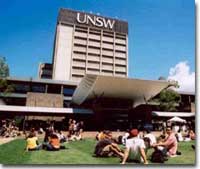|
||||
| Summary of Programs | ||||
|
Program Titles and Codes
Course Codes Course Availability Program Completion Overview of Programs Student Workload
Program code: 1745
Program Title: Doctor of Philosophy Qualification abbreviation: PhD Program code: 2455 Program title: Master of Taxation by Research Qualification abbreviation: MTax (Research) Program code: 9245 Program title: Master of Revenue Administration Qualification abbreviation: MRevAdmin Program code: 9250 Program title: Master of Taxation Qualification abbreviation: MTax Program code: 9255 Program title: Master of International Taxation Qualification abbreviation: MIntTax Program code: 9257 Program title: Master of Taxation Studies Qualification abbreviation: MTaxStudies Program code: 9260 Program title: Master of Applied Taxation Qualification abbreviation: MAppTax Program code: 9270 Program title: Master of Taxation and Financial Planning Qualification abbreviation: MTaxFinPlan Program code: 5245 Program title: Graduate Diploma in Revenue Administration Qualification abbreviation: GradDipRevAdmin Program code: 5272 Program title: Graduate Diploma in Taxation and Financial Planning Qualification abbreviation: GradDipTaxFinPlan Program code: 5540 Program title: Graduate Diploma in Advanced Taxation Qualification abbreviation: GradDipAdvTax Program code: 5541 Program title: Graduate Diploma in Taxation Studies Qualification abbreviation: GradDipTaxStud Program code: 7270 Program title: Graduate Certificate in Taxation and Financial Planning Qualification abbreviation: GradCertTaxFinPlan Program code: 7541 Program title: Graduate Certificate in Taxation Studies Qualification abbreviation: GradCertTaxStud Program code: 7545 Program title: Graduate Certificate in Revenue Administration Qualification abbreviation: GradCertTaxFinPlan A course number (identifier) in the UNSW system is formed from two principal elements:
- a four letter prefix indicating the Course Disciplinary Area designated by the code (e.g. ATAX) - a four digit code. The first two numbers indicate the program to which it belongs and the second two numbers indicate the course. The following is a key to understanding the various course numbering codes used in the following sections on program information: ATAX01** Graduate Diploma in Taxation Studies and Graduate Certificate in Taxation Studies courses - parallels some ATAX00** courses ATAX03** Graduate Diplomas, Graduate Certificate in Taxation and Financial Planning and Graduate Certificate in Revenue Administration courses - mostly parallel ATAX04** courses ATAX04** Masters courses Prior to the commencement of each semester, course availability is included as part of the enrolment/re-enrolment information pack. Course descriptions for courses offered can be found in the Online Handbook at legacy.handbook.unsw.edu.au
There is no University-wide rule requiring students to complete a program within a specified period of time. Atax will not usually recognise courses as part of a degree program where those courses are more than eight years old. Thus a postgraduate program should ordinarily be completed within 8 years of commencement. It is also the accepted practice for the University to notify students if they are not progressing satisfactorily. Please refer to the myUNSW page on 'Academic Standing' for further information.
The postgraduate coursework programs currently offered by Atax are the Master of Taxation, Master of International Taxation, Master of Applied Taxation, Master of Taxation and Financial Planning, Master of Revenue Administration, Graduate Diploma in Advanced Taxation, Graduate Diploma in Taxation Studies, Graduate Diploma in Taxation and Financial Planning, Graduate Diploma in Revenue Administration, Graduate Certificate in Taxation and Financial Planning, Graduate Certificate in Revenue Administration, and the Graduate Certificate in Taxation Studies. Two postgraduate programs by research are also available: the PhD program which requires the completion of a supervised thesis (approximately 100,000 words) and the Master of Taxation by Research.
Atax serves the whole tax profession. In the context of recent and continuing fundamental changes to the Australian taxation system, experienced practitioners require the thorough upgrading of their skills and knowledge provided by postgraduate studies. Atax provides access to tax education to students across Australia, and provides mobility advantages for the many students who move around Australia or overseas in their jobs. The Atax postgraduate tax programs build on the foundation provided by undergraduate study. Atax offers advanced postgraduate tax programs for existing taxation specialists with degrees in law or commerce and for graduates of the Atax undergraduate tax program. Entrants from other disciplines are offered a Graduate Diploma in Taxation Studies to bring them up to similar standards in core areas, consistent with tight time constraints, as Bachelor of Taxation graduates. The Masters programs and Graduate Diploma in Advanced Taxation program offer exposure to the more advanced aspects of the discipline and a critical understanding of the Australian tax system. The Masters programs emphasise skills in sustained self-directed writing, including relevant research skills. The Master of Applied Taxation is designed for Chartered Accountants who are regularly faced with tax issues in their professional work. In addition to developing research skills, the program focuses on specific studies in taxation in a business context. Part-time students will normally complete one or two courses per semester. Full-time students will normally complete four courses per semester. 'Full-time' students are defined as having a load of 0.75 or more (0.375 per semester). Each semester is 12 weeks in duration. Contact will vary from course to course. As a rough guide, students can expect to spend at least 12 hours per week studying each course.
In special circumstances with approval from the program convenor, a heavier load could be taken. That would depend to some extent on the student's prior academic record. Home | A Message from the Dean
School of Law - Faculty Centres and Units | Faculty Information and Assistance | Summary of Programs Australian School of Taxation - Faculty Information and Assistance | Summary of Programs |
||||



